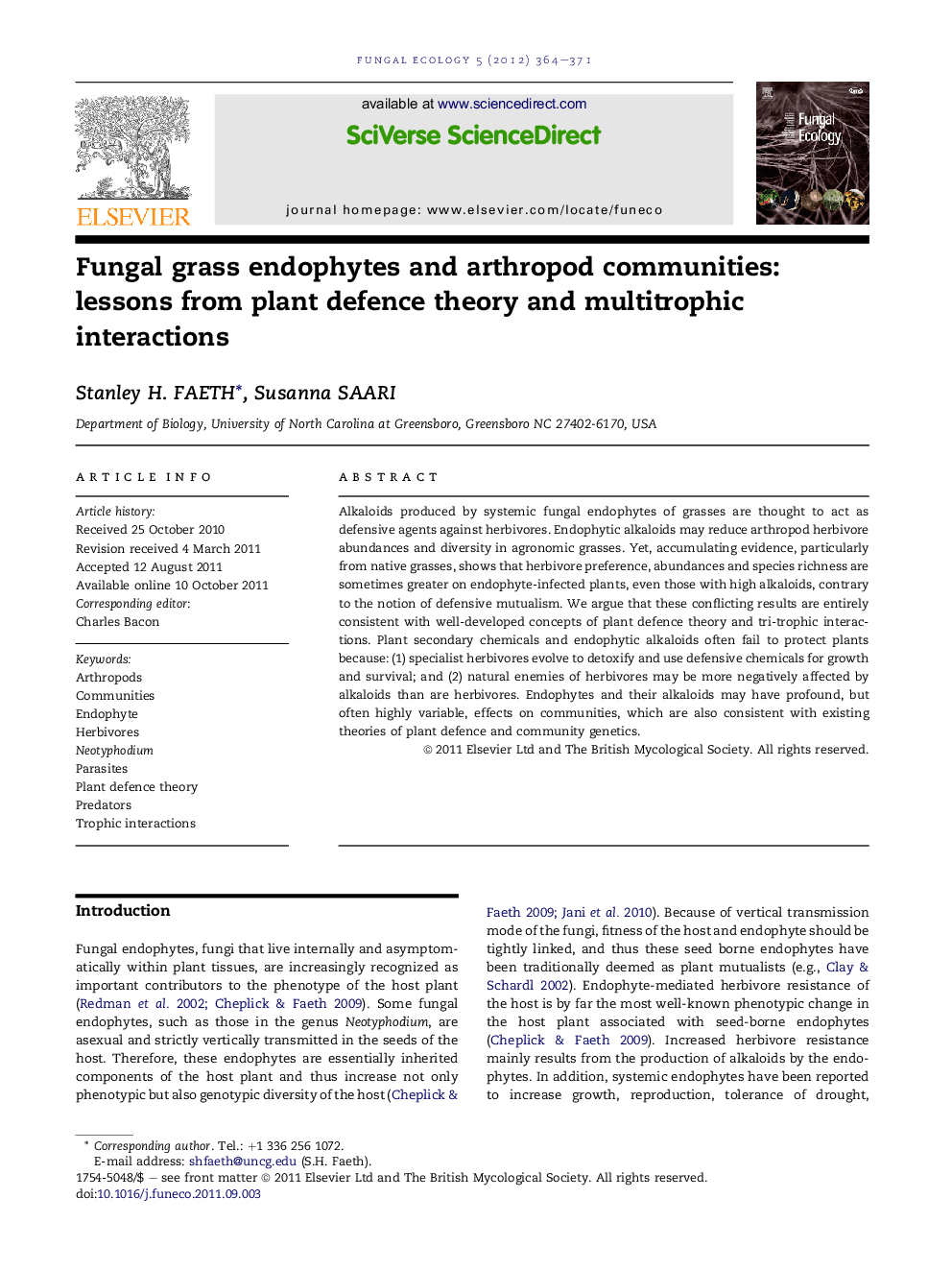| Article ID | Journal | Published Year | Pages | File Type |
|---|---|---|---|---|
| 2053878 | Fungal Ecology | 2012 | 8 Pages |
Alkaloids produced by systemic fungal endophytes of grasses are thought to act as defensive agents against herbivores. Endophytic alkaloids may reduce arthropod herbivore abundances and diversity in agronomic grasses. Yet, accumulating evidence, particularly from native grasses, shows that herbivore preference, abundances and species richness are sometimes greater on endophyte-infected plants, even those with high alkaloids, contrary to the notion of defensive mutualism. We argue that these conflicting results are entirely consistent with well-developed concepts of plant defence theory and tri-trophic interactions. Plant secondary chemicals and endophytic alkaloids often fail to protect plants because: (1) specialist herbivores evolve to detoxify and use defensive chemicals for growth and survival; and (2) natural enemies of herbivores may be more negatively affected by alkaloids than are herbivores. Endophytes and their alkaloids may have profound, but often highly variable, effects on communities, which are also consistent with existing theories of plant defence and community genetics.
► Endophytic fungi in grasses may produce alkaloids that deter herbivores.► Thus, endophytes are viewed as plant mutualists.► However, herbivore abundance and richness may be greater on infected native grasses.► We argue these conflicting results are easily explained by plant defense theory.► Complex outcomes of endophyte infection are expected in natural communities.
